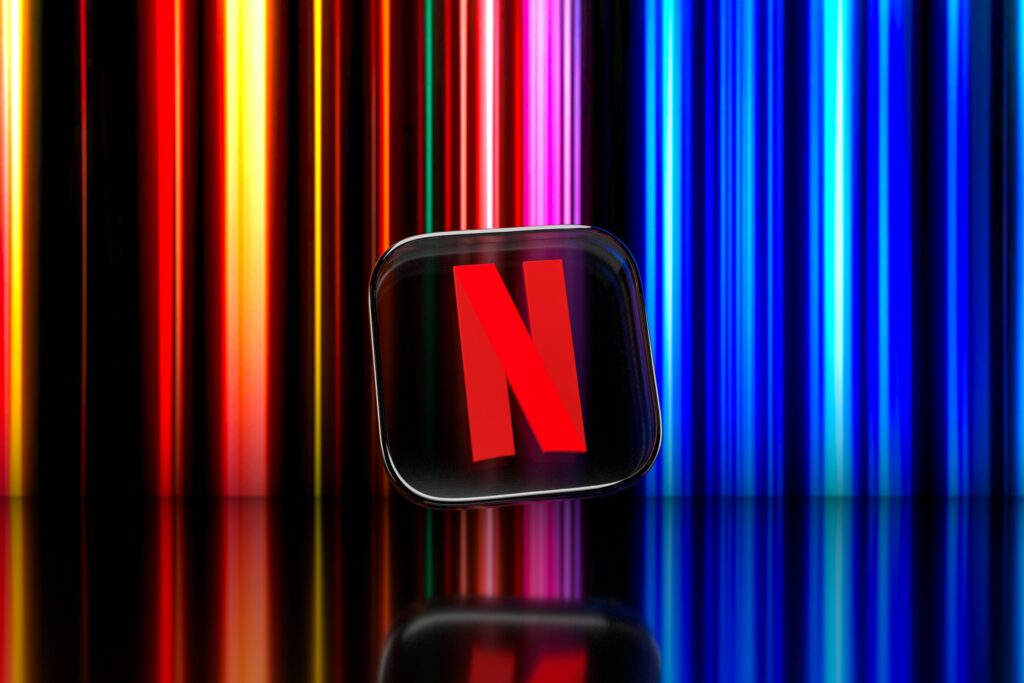
Discover how Netflix’s new strategy is affecting Nollywood. From sharing revenue with Netflix to licensing deal cuts, these challenges affect the future of Nollywood streaming.
Investing your commitment, savings, and time into a project only to find your biggest backer suddenly changing the rules mid-game. That is the raw frustration Nollywood producers are going through today. For Nollywood producers, Netflix has been the driving force behind transforming low-budget flicks into global hits. However, in 2025, the vibe has shifted.
A recent online comment, “Nollywood content is not performing well on Netflix,” spoke volumes. This sentiment was amplified in a July 2025 piece by What Kept Me Up, titled “The Shrinking Presence of Nollywood on Netflix in 2025, So Far.” In the first half of 2025, only five Nigerian titles were on Netflix, down from ten in 2024 and 19 in 2023. This guide examines Netflix Nigeria, Netflix revenue sharing shifts, and the future of Nollywood streaming.
The Golden Era: How Netflix Licensing Deals Transformed Nollywood
In 2016, Netflix launched in Africa, significantly boosting Nollywood by offering high-quality local content. Nollywood enjoyed massive upfront fees per film production. These deals not just fund shoots; they also bankroll the entire careers of those involved.
For Nollywood producers, this was a game-changer. The industry, already the world’s second-largest by volume, became more refined. Movies like Aníkúlápó (2022) were produced with Netflix footing the bill for cameras, crews, and marketing to 190 countries. By 2023, Netflix had invested $23 million in local licensed titles, funding 250-plus titles and supporting 5,140 jobs.
As Kunle Afolayan put it in a 2024 interview, “Three years ago, Netflix deals meant one movie a year with guaranteed funds and pure creative freedom.” This Netflix and Nollywood connection felt unbreakable. Producers budgeted boldly, actors demanded fair pay, and the vibe was electric.
But like any Nigerian love story, cracks showed. In 2025, Netflix profits amid global squeezes hit pause. The upfront cash? Slashed. What replaced it? A leaner, riskier beast: Netflix revenue sharing.
The Pivot to Netflix Revenue Sharing: A Double-Edged Sword
So, what is the new strategy that is putting producers on the edge? Netflix and Nollywood’s old model was simple. As a producer, you get to sign a Netflix licensing deal, get a lump sum, and then watch your film stream worldwide. No strings, just green.
However, in 2025, Netflix flipped the script to revenue sharing. They offer a smaller upfront fee plus a cut of profits based on views. This is trading a steady salary for commission sales.
Why the sudden change? Netflix’s global playbook detailing curb spending, boost ROI. In Q1 2025 alone, the company raked in $10.5 billion, up 13%, thanks to price hikes and ad tiers. But originals worldwide, including Nollywood’s, were not always pulling weight.
In Africa, Netflix is prioritizing “local first” with caution, amid Nigeria’s economic woes like soaring data costs and piracy. Earnings now hinge on algorithms. In a market where piracy siphons revenue, Netflix Nigeria’s problems compound. Geo-blocking limits global reach, and deprioritized titles mean fewer commissions.
Chaos Unleashed: Netflix Nigeria Problems and the Toll on Producers
If Netflix revenue sharing is the plot twist, the fallout is a pure Nollywood drama. It highlights the tears, tantrums, and tough choices in a Nollywood blockbuster. Netflix Nigeria’s problems boil down to one word: uncertainty. Producers, who once closed dollar deals, are now at the crossroads of where to put their films.
The chaos? Financial free-fall for Nollywood producers. Speaking at the recently held Zuma Film Festival in Abuja, Kunle Afolayan did not hold back. He said, “I have tried to avoid the issue of Netflix because it is really heartbreaking and a big blow to us. I have been thinking of how we can come from earning in dollars to thinking of where to put our films.” He further called it a “fatal last supper,” with canceled projects leaving entire crews high and dry.
Without the hefty funding from the golden era, Netflix and Nollywood producers can not frontload costs like talent fees or even post-production. These costs are known to be brutal in Nigeria’s economy, where inflation bites hard and data costs rise. Actress Bimbo Akintola pinned this chaos on low viewership for originals. However, the real sting is a smaller budget, meaning churning out formulaic flicks, or worse, shelved dreams.
But oh, it is personal too, this Netflix and Nollywood rift. The human cost of families delaying fees, crews unpaid, creators doubting their worth, is the real villain. In this messy saga, this cost hangs the future of Nollywood streaming in the balance. Stories that capture Nigeria’s spirit risk fading away as producers chase quick YouTube wins over deep, narrative gems.
Netflix denies a full exit. “We are committed to Nigerian stories,” they told TechCabal back in December 2024. However, slashed deals and geo-blocked titles depict otherwise. With this chaos, it is unclear whether producers will bounce back or if this is the end of an era.

The Future of Nollywood Streaming: Resilience and Reinvention
The chaos from Netflix revenue sharing and faded Netflix licensing deals exposes cracks, but it is also sparking reinvention. Nollywood producers are not backing down; they are pivoting. Platforms like Kava, launching August 2025, promise curated Nollywood libraries with fairer splits, not Netflix’s view-based strategy. YouTube’s billions in views and local cinemas, which bounced back post-2024, also offer alternatives for producers.
The future of Nollywood streaming? Experts predict Nollywood could rule Netflix’s African slate in five years, but it is not about waiting for Netflix to play nice. As success demands diversification, producers are tapping government grants (Project Nollywood), anti-piracy efforts, and collabs beyond a streamer. Chris Odeh urges building local channels, festivals, or African apps to own the narrative.
Netflix and Nollywood’s story is not over yet. It is a call for Nollywood producers to hustle smarter on leaner budgets and tell bolder tales. As the best Nollywood plots twist before triumph, Netflix and Nollywood will rise again, vibrant, unfiltered, and unbreakable.
Conclusion
Though Netflix and Nollywood stories have got twists, Nigeria’s film heart keeps beating. From Netflix revenue sharing woes to slashed Netflix licensing deals, the chaos is real, but so is Nollywood’s grit. Ready to dive deeper into the future of Nollywood streaming? Join the SimplVest newsletter for Netflix Nigeria problems and Nollywood insights.












